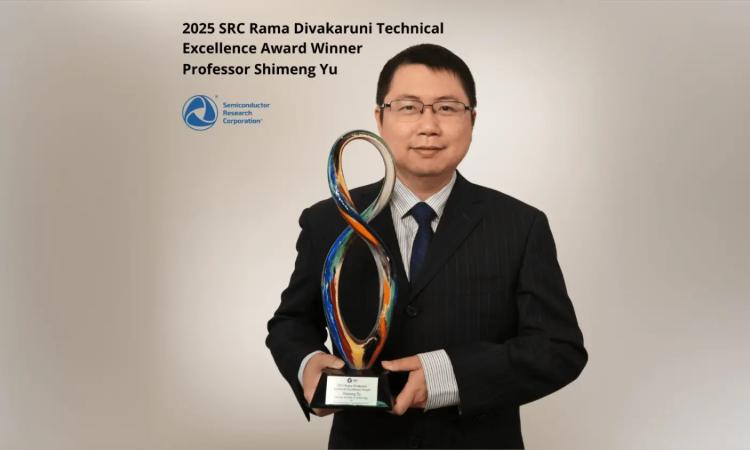The Design Automation Conference recognized Tushar Krishna for work on an ecosystem of AI design tools to help enable the future of computing.
(text and background only visible when logged in)

(text and background only visible when logged in)
As artificial intelligence (AI) continues to become more intertwined with computing, the need for co-design and co-optimization of the stack from both the software and hardware sides becomes increasingly important to keep up with the rising performance demands.
Georgia Tech School of Electrical and Computer Engineering (ECE) Associate Professor Tushar Krishna was recognized for his efforts in enabling this research with the Design Automation Conference (DAC) Under-40 Innovators Award.
Krishna led the development of an ecosystem of design tools that model different components of an AI system and can be leveraged to help create the next generation of computing. He worked closely with industry partners, including Intel, IBM, AMD, and Meta.
“Full-stack modeling and simulation frameworks are essential for navigating the vast design space of AI datacenters,” Krishna said. “They bridge technology, architecture, systems, and AI application co-design — and their value multiplies when developed in close partnership with industry, where insights from real deployments close the loop between theory and practice.”
The Under-40 Innovators Award recognizes up to five young innovators who are “movers and shakers” in the field of design and automation of electronics. Krishna accepted the award at the 62nd DAC in San Francisco.
He is the third ECE faculty to win the award, joining Steve W. Chaddick School Chair Arijit Raychowdhury in 2018 and Professor Shimeng Yu in 2020.
The recognition highlighted the impact of four tools across industry and academia:
- SCALE-sim a neural processing unit compute simulator that models systolic array microarchitectures, dataflows, and memory hierarchies.
- Garnet is a network fabric simulator that became part of the gem5 simulation framework and enables multi-core/multi-chiplet interconnect research.
- ASTRA-sim is a distributed AI system simulator that provides application programming interfaces to enable the composition of open and proprietary simulators for compute, memory, and fabric to seamlessly study different parts of an AI system at varying degrees of fidelity.
- Chakra is a distributed AI workload representation to collect real-system execution traces to feed to other simulators, such as ASTRA-sim.
ASTRA-sim and Chakra have been adopted by industry groups, such as the Semiconductor Research Corporation, Open Compute Project, and MLCommons, for standardization and broader distribution among industry.
Related Content
Khan and Menon Selected for Prestigious EU-US Frontiers of Engineering Symposium
The National Academy of Engineering–affiliated symposium brings together top early-career researchers from both sides of the Atlantic to address critical challenges in science and technology.
Yu Receives SRC Technical Excellence Award
The ECE professor was honored for advancing open-source tools and memory technologies shaping future computing.

